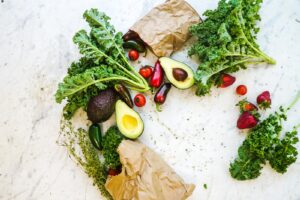There’s a lot of talk about a rush to get a vaccine for this novel virus SARS-CoV-2.
Stocks rebounded on optimism the United States economy might start to recover from the coronavirus pandemic after drug maker Moderna released promising early results for a vaccine. The surge in deaths not related to coronavirus is on the rise. Folks are not going to the doctor’s office or the ER for fear of becoming exposed, possibly contributing to their poor health.
So, the Dow soars, people are dying, sailors on ships are being “reinfected.” What are we to do? So many confusing messages …
Let’s start here. Unlike external events that we cannot control, we do have control over our immune systems. Regardless of a pandemic, the Dow, or anything else, we have one body and we have to take care of it in order for it to take care of us for the long haul.
I hope COVID-19 has opened our eyes to the importance of the immune system. We need to nurture it regularly so it can help us fight whatever may be coming at us. Many are suffering and dying from this virus needlessly — a healthy immune system can be our best defense against any foreign invader.
There’s been a lot of talk about a vaccine for COVID-19, and there is a race to develop a vaccine as quickly as possible. Unfortunately there’s quite a bit to consider in creating a vaccine that is ideal for everyone. Let’s review the facts about how a vaccine is made, and perhaps this will help us decide whether being vaccinated for COVID-19 is appropriate.
There are currently 100 vaccine candidates for COVID-19 in production. Some are saying that a vaccine can become available as soon as 12 to 18 months, but the previous record for getting a vaccine to market was 4 years. Vaccine development is generally measured in years, not months. There are different types of vaccines, ranging from the traditional, where a weakened version of the virus is used to spur immunity, to newer kinds of vaccines, like the potential use of messenger RNA to attempt to trigger an immune response more precisely.
A vaccine is designed to boost our natural immune response to an invading virus by priming it to recognize antigens, unique molecules found on the surface of pathogens. Ideally, the immune system responds to the presence of these antigens by producing special immune cells that attack the pathogen directly, or by producing proteins called antibodies. Antibodies attach to an antigen and attract immune cells that engulf and destroy the pathogen. Researchers have to be sure that any vaccine candidate will not spur a counterproductive, even dangerous, immune system reaction known as immune enhancement. A dysregulated immune response may involve antibodies or immune cells or both.
Once there is a promising vaccine candidate, the work of making sure that candidate is safe and effective takes time. It takes months for researchers to make sure that immunity lasts for the long term. They also have to ensure the vaccine is safe and does not produce adverse effects. If a vaccine candidate makes it through all the trials, manufacturing in large quantities presents another challenge. Thompson at the Times analyzed the many steps required for a vaccine candidate to make it out into the real world: academic research, pre-clinical work, three phases of trials, building up factories and manufacturing, and finally distribution. It can take up to 16 years for a vaccine to go from the first point to the last.
The rush for a vaccine for COVID-19 poses concerns. Vaccine testing proceeds slowly because the human body responds slowly — it takes weeks to produce the antibodies that provide immunity, and it can take even longer to show any harmful side effects. A major concern is that coronaviruses do not tend to trigger long-lasting immunity. About a quarter of common colds are caused by human coronaviruses, but the immune response fades so rapidly that people can become reinfected the next year.“That’s what is particularly challenging,” says Stanley Perlman, a veteran coronavirus researcher at the University of Iowa. “If the natural infection doesn’t give you that much immunity except when it’s a severe infection, what will a vaccine do? It could be better, but we don’t know.” If a vaccine only protects for a year, the virus will be with us for some time. The genetic stability of the virus matters too. Some viruses, such as influenza, mutate so rapidly that vaccine developers have to release new formulations each year. The rapid evolution of HIV is a major reason we have no vaccine for the disease.
So far, the SARS-CoV-2 coronavirus seems fairly stable, but it is acquiring mutations, as all viruses do. Some genetic changes have been spotted in the virus’s protein “spikes”, which are the basis of most vaccines. If the spike protein mutates too much, the antibodies produced by a vaccine will be out of date and not able to bind the virus effectively enough to prevent infection. John McCauley, director of the Worldwide Influenza Centre at the Francis Crick Institute, says it takes time to understand the particular challenges each vaccine presents. “You don’t know the difficulties, the specific difficulties, that every vaccine will give you,” he says. “And we haven’t got experience in handling this virus or the components of the virus.”
Vaccines are simple in principle but complex in practice. The ideal vaccine protects against infection, prevents its spread, and does so safely. But, as vaccine timelines show, none of this is easily achieved. In all likelihood, a coronavirus vaccine will not be 100% effective. It is more likely that we will end up with a vaccine, or a number of vaccines, that are only partially effective. Partially effective vaccines have their own problems — a vaccine that doesn’t stop the virus from replicating can encourage resistant strains to evolve, making the vaccine redundant. David Heymann, who led the response of the World Health Organization (WHO) to the SARS epidemic, says it is too soon to know how the pandemic will pan out. “We don’t understand the destiny of this virus,” he says. “Will it continue to circulate after its first pandemic? Or will it, like some other pandemic viruses, disappear or become less virulent? That we do not know.”
To vaccinate for SARS-CoV-2 or not is a choice each one of us will make based on our understanding, personal beliefs, and underlying conditions that may pose a risk for our long term health. Either way, vaccine or no vaccine, keeping our immune system in top shape should be our goal. Keep in mind that there are a plethora of other pathogens out there and they can strike at any time.
We can have control by taking care of the only body we have.
Nurturing an effective immune system is the only defense we’ve got. These all play a vital role in supporting and maintaining a strong immune system:
- Reducing stress
- Drinking water throughout the day
- Moderate exercise
- Eating a diet rich in leafy green vegetables, lean protein, and foods rich in antioxidants
- Taking pharmaceutical grade supplements rich in micronutrients to protect our cells from damage
Dr Ashwani, an eminent gastroenterologist and the director of Aashlok Hospital Fortis Associate India, underlines the importance of taking supplements for the essential vitamins and minerals that are not commonly found in our diet. Some of these include vitamins B6, B12, C, D, and E as well as zinc and magnesium. He also insists on including foods with high ORAC (Oxygen Radical Absorbance Capacity) value in our diet, as they are loaded with antioxidants.
The ability of antioxidants to destroy free radicals protects the structural integrity of cells and tissues. Recent clinical trials have found that antioxidant supplementation can significantly improve certain immune responses. Supplementation with antioxidant vitamins also protects immune responses in individuals exposed to certain environmental sources of free radicals. Stop by TLC Medical Centre Pharmacy to find out your antioxidant score. The patented Pharmanex BioPhotonic Scanner is a cutting edge testing tool that non-invasively measures carotenoid levels in living tissue and provides an immediate indication of a person’s overall antioxidant levels. Knowing your antioxidant status empowers you to make improvements to your diet and lifestyle and helps you make informed decisions about which supplements are properly formulated to impact your antioxidant health.
























